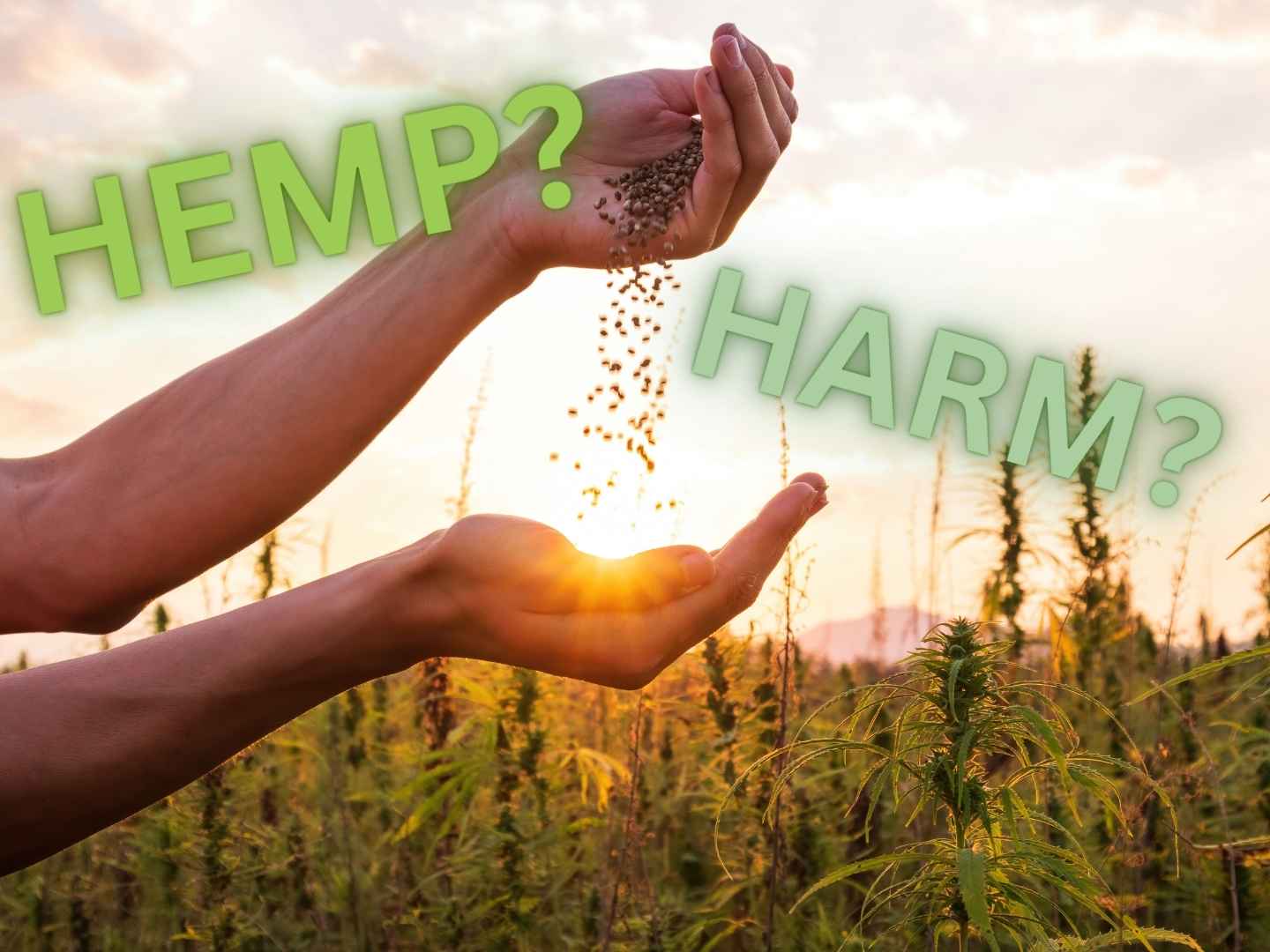Hemp or Hype? The Truth About Intoxicating Cannabis Products

Let’s set the record straight—hemp is cannabis. They’re the same plant, but their uses and legal definitions have created a lot of confusion. Over the years, hemp has been marketed as the harmless, industrious sibling of cannabis, downplaying its connection to psychoactive compounds like THC. But recently, a flood of "hemp-derived" products with intoxicating effects has blurred these distinctions even further. So, what’s really going on? A closer look at the industry’s claims reveals a tangle of half-truths and myths that desperately need unraveling—for the sake of both consumer safety and transparency.
The 0.3% THC Loophole
Here’s a fun fact to kick things off: the legal definition of hemp is based on its delta-9 THC concentration—0.3% or less. Sounds harmless, right? Not so fast. That number might look small on paper, but scale it up, and it becomes a different beast entirely. Imagine a 12-ounce beverage labeled as hemp-derived with 0.3% THC. It could pack over 1,000 milligrams of THC in total—more than enough to knock even a seasoned consumer off their feet. The idea that 0.3% makes a product non-intoxicating is a convenient fiction, one that’s been used to sneak highly potent products into an unsuspecting market.
Five Milligrams of THC: Safe or Misleading?
Another gem from the hemp industry’s playbook is the claim that a 5 mg serving of THC is universally non-intoxicating. While that might hold true for some, anyone who’s ever experimented with edibles knows that THC hits everyone differently. Genetics, tolerance, and metabolism all come into play. Add to that the fact that THC, when ingested, is converted into the more potent 11-Hydroxy-THC, and suddenly that “safe” dose doesn’t feel so safe. For plenty of people, 5 mg can cause noticeable effects, and marketing it as universally non-impairing is, frankly, irresponsible.
Is Delta-8 THC The “Gentler” Cannabinoid?
If you’ve heard the buzz about delta-8 THC being a milder alternative to delta-9 THC, you’re not alone. The logic goes like this: delta-8 binds less strongly to brain receptors, so it must be less intoxicating. But here’s the catch—most consumers simply up their intake to achieve a similar high. The result? High doses of delta-8 products are flooding the market, effectively sidestepping regulations designed to control delta-9. This isn’t harm reduction; it’s just rebranding.
Serving Sizes vs. Reality
Let’s talk serving sizes for a moment. Many hemp-derived THC products boast precise measurements per serving while conveniently ignoring the reality of how people consume them. A bag of gummies might advertise 5 mg per gummy, but what happens when someone eats the whole bag in one go? The answer: unintentional overconsumption and a world of regret. Focusing solely on serving sizes without addressing total package content is another way the industry downplays the risks.
Can CBD Really “Cancel Out” THC?
One of the more creative claims floating around is that CBD can neutralize THC’s intoxicating effects, allowing for higher THC limits in products that contain both. While CBD can indeed modulate the effects of THC, it’s no magic eraser. The idea that pairing the two cannabinoids makes high-THC products “safe” is more marketing spin than science. Consumers deserve better than these oversimplified narratives.
Why This Matters
So why should you care about any of this? For starters, this kind of misinformation puts consumers at risk. People deserve to know exactly what they’re ingesting and how it might affect them. Beyond that, the confusion between hemp and cannabis creates challenges for regulators trying to protect public health. Without clear guidelines and honest labeling, it’s the average consumer who ends up paying the price.
Clarity Over Confusion
The bottom line? If it walks like cannabis and talks like cannabis, it probably is cannabis—even if it’s dressed up with a hemp label. As the cannabis and hemp industries continue to evolve, transparency is more important than ever. Regulators need to close these loopholes, and the industry needs to take responsibility for honest marketing. Meanwhile, consumers should approach hemp-derived THC products with a healthy dose of skepticism and a sharp eye for what’s on the label.
We’re in an era where cannabis legalization is changing the game, but that comes with a responsibility to educate, not mislead. The sooner we can cut through the noise and focus on truth, the safer and more sustainable this industry will become. Until then, don’t believe everything you hear—especially when it comes from a company trying to sell you a “harmless” high.
Please note: You are not currently logged in. Only members can contribute comments. If you would like to contribute click the button below.

JUN
Wednesday
4
A Dispensary EventDragonfly Wellness |
Dragonfly Wellness
Community Clean Up
We're an organization that is dedicated to the idea of empowering our community.
Every Thursday morning we partner with our neighbors at the Geraldine E. King Women's Resource Center to clean up our neighborhood together! We encourage all patients, pharmacies and community members alike to join us!
We understand it's not always possible to donate financially. So we have created a Covid-safe activity to benefit our entire community by cleaning it up, connecting and getting out doors all while simply donating our time together.
Masks are required. Social distancing is enforced. Supplies such as gloves, trash pickers, bags and sharp buckets will be provided for all volunteers at the south side of our building
We cannot thank you enough for your generous donation of your valuable time.
|
||||||

JUL
Monday
21
A Physician EventBryan Doner, DO |
Compassionate Caregivers and Compassionate Certification Centers
PA Medical Marijuana Educational Forum – Cranberry Public Library
Diana Briggs, Founder of PA Compassionate Caregivers and Dr. Bryan Doner, CEO of Compassionate Certification Centers, will give an overview of our PA Medical Marijuana Program. In addition, we will complete the evening with a panel of experts from the MMJ Industry to answer all of your questions.
|
